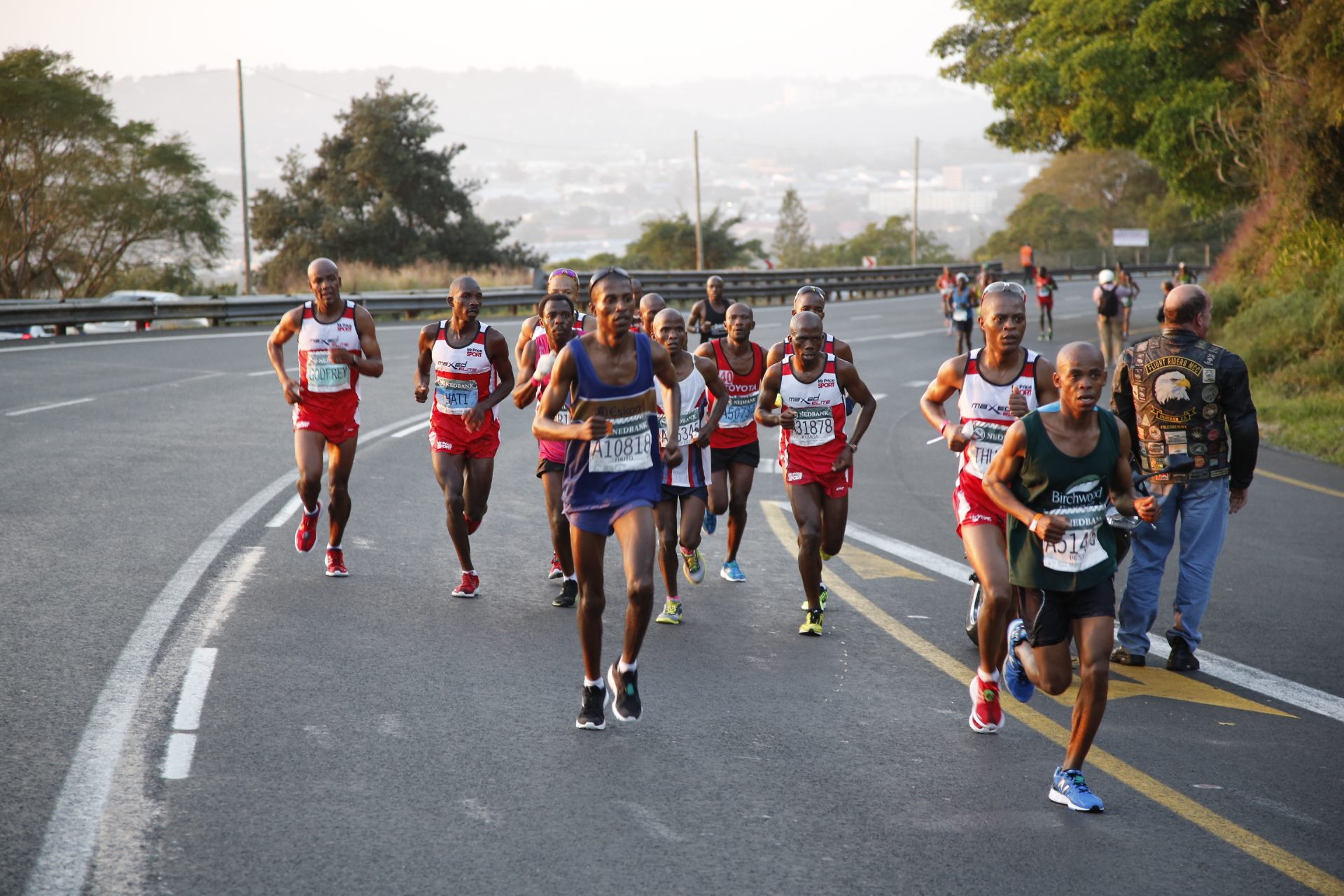Two Brothers, One Ultramarathon, And the Greatest Cheat in Running History

The 2013 Comrades Marathon. (Photo: Mr. Price Sport/Flickr)
In the pantheon of ultramarathons—grueling, absurdly long-distance runs—the Comrades Marathon is one of the oldest, and among the most famous. Celebrating its 90th year this past May, the race takes these masochistic athletes over a 90-kilometer (56.1-mile) jaunt along South Africa’s rugged coast, between Pietermaritzburg to Durban.
More astonishing than the ultramarathon itself is that every single year, 23,000 people decide it’s a good idea to enter the competition. The run usually takes about 11 or 12 hours, but the fastest men and women do it in under six. The runners who can’t finish the course in 12 hours are “swept up by the broom wagon,” meaning they are forcibly put on rescue vehicles. Most of them are “paralyzed by cramps, and clawing for the finish,” according to the New York Times.

So, why put oneself through such punishing physical extremes? Most entrants do the Comrades Marathon for charity—the real prize is the bragging rights. But some runners do it because they’re in dire need of cash.
The Comrades Marathon puts serious prize money on the line. In a convoluted system, runners can be awarded up to $10,000 U.S. dollars depending on their age class and the times at which they reach specific checkpoints.
As with competitive cycling, cheating scandals have plagued marathon competitions for years, and the Comrades is no exception. But instead of doping, some runners have decided to get a little bit more creative with their cheating strategies.

The upland savanna outside Pietermaritzburg. Imagine running 90 kilometers through this. (Photo: Gossipguy/Wiki Commons)
Meet Sergio Motsoeneng. Hailing from the impoverished Bantustan village of QwaQwa in central eastern South Africa, where he was an excellent long-distance runner in his own right, Sergio finished eighth in his first ever Comrades Marathon in 1999. Facing television cameras after the race, he said he would donate his gold medal—a reward for finishing in the top 10—and $1000 prize to his father back in the village.
But something was amiss. Fellow race runner Nick Bester, an ultramarathon veteran, complained that he never saw Sergio pass him in the final stretch. And this was particularly unusual—Bester, who finished 15th that year, made a specific habit of counting runners.
According to The Independent, race officials initially cleared Sergio of wrongdoing after examining the time sheets. That is, until an intrepid reporter with The Beeld, an Afrikaans daily newspaper, published some very questionable photographs of Sergio.
During the race, in the time that elapsed between the first and second photos being taken, Sergio had apparently switched his watch from his left wrist to his right wrist and inexplicably grown a scar on his left shin. When the photos came to light, Bester, the scorned 15th place finisher, knew that something was up.
As it turns out, the competitor Sergio Motsoeneng was not one, but two people. Forty-five minutes into the race, Sergio ducked into a porta-potty. Inside, his identical brother, Fika, was waiting.

Sergio, on the left, and Fika, on the right. (Photo: AP Photo)
Sergio removed his shirt, bib, hat, and even shoes, and gave them to his brother, who continued the race. The race organizers figured that this bait-and-switch happened on more than one occasion throughout the 90-kilometer course. The siblings had organized their own relay.
When the deception was confirmed, Sergio and Fika were stripped of their prize money and banned from competing in any ultramarathon for over five years. Each sibling cited poverty as their reason for cheating.
The Motsoeneng brothers’ lawyer, Clem Harrington, a Comrades runner himself, was quoted in the press: “This is quite a tragic story. Hopefully, Sergio will not be lost to the sport because he is a highly talented runner. If he harnessed the energy he put into cheating into rather running the race properly, who knows, he might have finished top five.”
This prediction came true in 2010, when Sergio returned to the Comrades Marathon and finished strongly in third place. But the triumph was short-lived—shortly afterwards, Sergio tested positive for an “unknown banned substance.”










Follow us on Twitter to get the latest on the world's hidden wonders.
Like us on Facebook to get the latest on the world's hidden wonders.
Follow us on Twitter Like us on Facebook